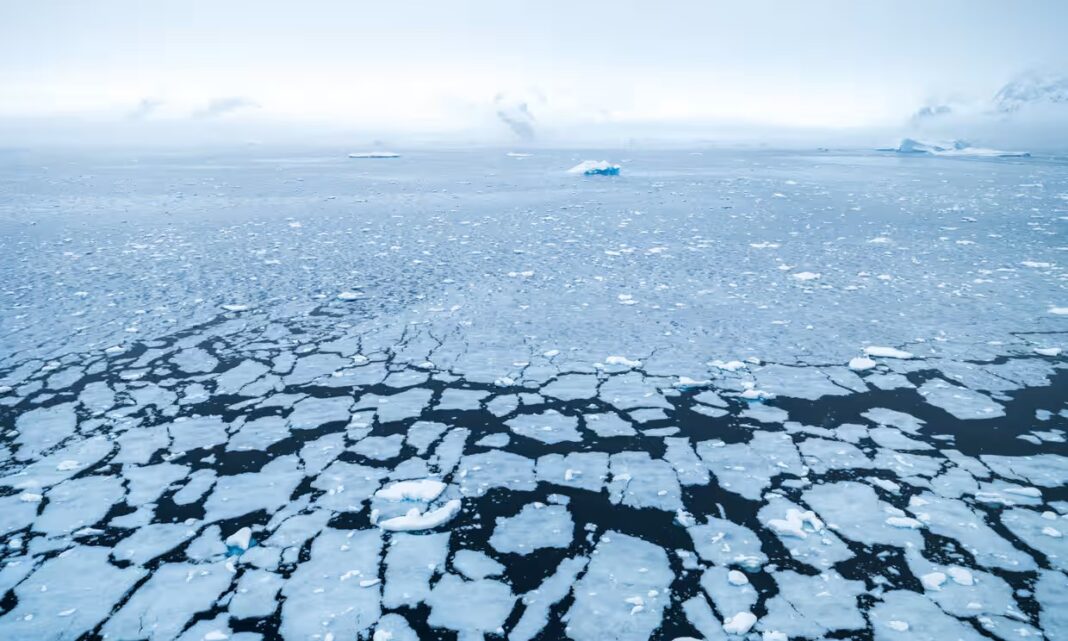Scientists have warned that global sea ice levels plunged to an all-time low in February, a stark indicator of a planet increasingly destabilized by human-driven climate change.
According to the EU’s Copernicus Climate Change Service (C3S), the combined sea ice extent in the Arctic and Antarctic reached a new daily minimum in early February. It remained below the previous record for the rest of the month. This decline underscores the dire consequences of rising global temperatures, primarily fueled by greenhouse gas emissions.
“One of the consequences of a warmer world is melting sea ice,” said Samantha Burgess, deputy director at C3S. “The record or near-record low sea ice cover at both poles has pushed global sea ice cover to an all-time minimum.”
The Arctic sea ice shrank to 8% below average, marking its lowest February level on record. Antarctic sea ice dropped to 26% below average, ranking as the fourth-lowest February level in recorded history. The findings are based on satellite data from the late 1970s and historical records from the mid-20th century.
Scientists had already observed an extreme heat anomaly in the North Pole at the start of February, where temperatures soared more than 20°C above average, surpassing the melting threshold for sea ice. The alarming trend is particularly concerning because sea ice acts as a natural climate regulator, reflecting sunlight and cooling the planet.
“The lack of sea ice means darker ocean surfaces, which absorb more sunlight and accelerate global warming,” explained Mika Rantanen, a climate scientist at the Finnish Meteorological Institute.
As sea ice continues to decline, experts warn of amplified climate feedback loops, rising sea levels, and long-term disruptions to global weather patterns. The record-breaking loss underscores the urgent need for aggressive climate action to curb emissions and prevent further destabilization of Earth’s polar regions. Read More
News Credit: The Guardian
Picture Credit: Mara Unkefer/Getty Images



